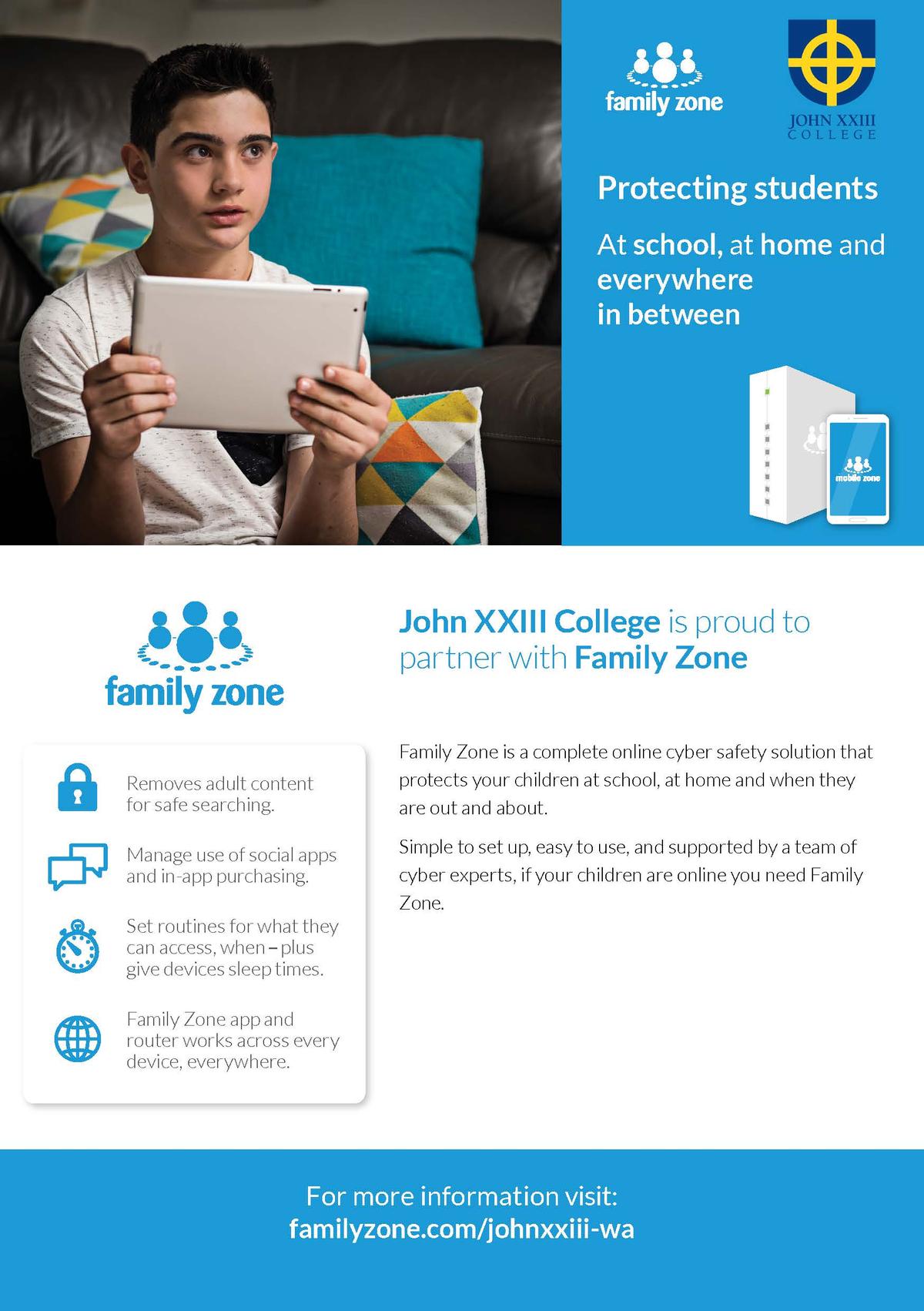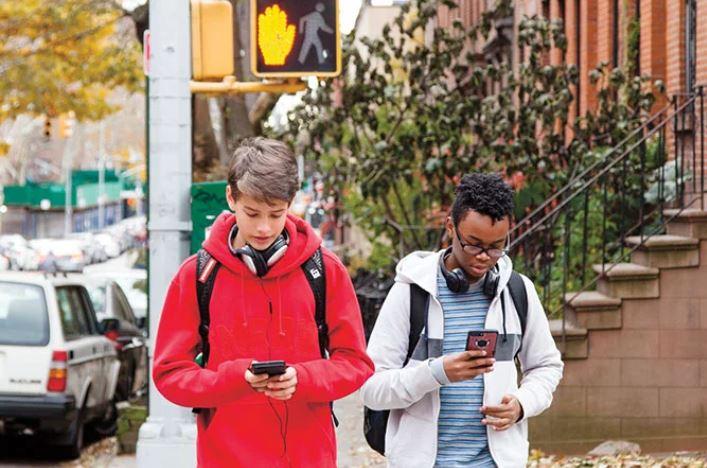Family Zone & Cyber Safety

Download Family Zone
Make use of the Family Zone Accounts which we are offering to John XXIII College families for free, as part of our College contract negotiations until April 2020.
By setting up a private Family Zone account, you can apply age-appropriate parental controls on every device your child has access to, in any location. To find out more visit https://www.familyzone.com/johnxxiii-wa
Family Zone Webinar recordings
For those that were unable to make the Family Zone webinars, we have recorded both sessions for you to view in your own time, and they are available here: https://www.familyzone.com/johnxxiii-wa
Webinar topics are:
- Getting Started with Family Zone
- Advanced with Family Zone
Think you're good at multitasking? Think again.
When's the last time you watched an entire TV program without scrolling through your Facebook feed? Or drilled down into that spreadsheet without taking breaks to check your email?
Maybe more to the point, when your child is doing her homework - exactly how many apps and tabs does she have open and active?
Once upon a time, doing one thing at a time was just what people did. But in today’s always-connected digital world, multitasking rules. At work, at home and on the go, juggling multiple inputs on multiple devices has become the default mode for grown-ups and kids alike.
And we are so much more productive as a result.
Aren’t we …?
The answer - according to a growing body of research - is “absolutely not.” In fact, say experts, multitasking not only fails to make us more productive, it actively slows our brains down, making us significantly less effective at completing tasks and practically guaranteeing more errors and slip-ups.
The reason why is simple: “multitasking” is an illusion.
There's no such thing
Our brains are simply not capable of handling more than one cognitive task at a time. What looks like multitasking - and often feels like it too - is actually toggle-tasking, say experts.
In other words, we are still doing only one task at a time, but constantly switching gears, toggling our attention from one input to the other and back again.
The cognitive price of that process is exorbitant. And the impact on performance can be substantial.
The cognitive price
Science tells us that multitasking can slow down our cognitive processing by as much 20%.
That’s why texting while driving is banned in every Australian state and territory.
Why in Honolulu, it’s now illegal to so much as glance at your phone while crossing the street. Why the Dutch have banned texting while biking.
Science tells us that multitasking can slow down our cognitive processing by as much 20%.
The impact on study
The impact of multitasking on academic performance, while obviously not a case of life or death, can be an accident waiting to happen, too. Yet multitaskers are known to be overly confident. They imagine themselves to be the exception to the rule.
One 2015 survey showed a majority of students who are on social media or watching TV while studying are positive they are unaffected. The research loudly refutes this perception.
Most multitaskers will tell you they enjoy shuffling between inputs as a way to avoid boredom - and believe that as a result they will be paying more attention to their main task.
While that’s mistaken, there’s a grain of truth there, thanks to a factor researchers call “emotional lift.”
Emotional lift
Basically, it refers to the fact that if checking in on social media or taking gaming breaks actually gets a child to sit down and do their homework - the cognitive cost might be worth paying.
A homework performance that’s 20% less efficient is still better than no homework performance at all.
Finally, keep in mind that the notion that multitasking is a skill that can be honed over time - that practice will make perfect, or at least less imperfect - is absolutely without foundation. It’s not something we can get better at … no matter what age we started.


